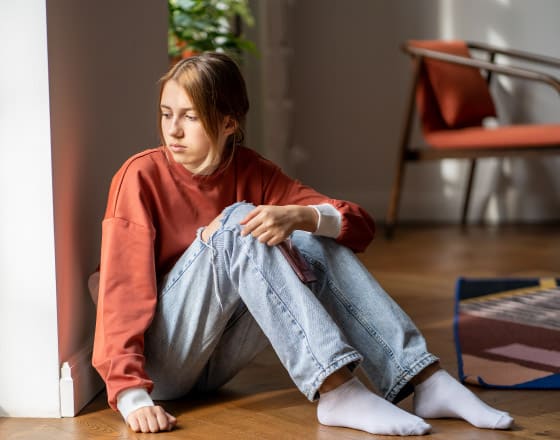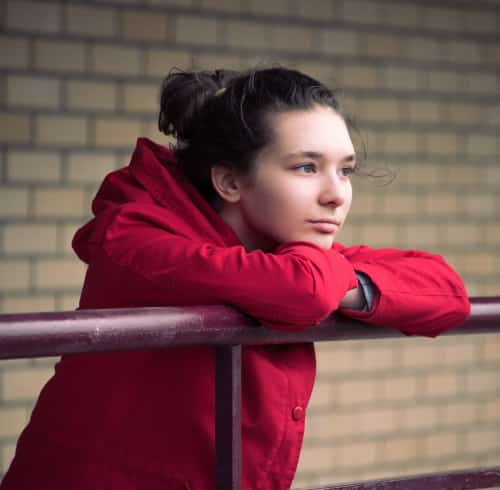To Call
Seeking Out A Residential School For Your Troubled Girl? Our Central Florida Residential Treatment Center For Girls Has Much To Offer.
If your daughter is struggling, you will want to find the best
treatment to help her. Providence Pass near Orlando helps
girls from across Florida.
- Beautiful Home & 20-Acre Ranch
- Individual, Family & Group Therapy
- Fun Recreational Activities
- Academics & Skill Building
- Equine Assisted Therapy

What are the Effects of Social Isolation?
Social isolation generally refers to a condition where a person experiences a lack of social interaction with others. It is not just about feeling lonely. While loneliness is about feeling alone no matter how many people are around you, social isolation is about actually being physically cut off from social networks and support systems. The distinction is important because someone can feel lonely in a crowd or feel fulfilled alone at home, depending on their social connections and mental state.
Social isolation can be due to many reasons, such as living far away from family and friends, working from home, or having physical issues that make it hard to get out. Unlike loneliness, which is subjective and about personal feelings, social isolation is more about the actual, objective separation from social contacts. Recognizing this difference helps in addressing both issues effectively, as they require different approaches for resolution.
Causes of Social Isolation
- Moving to a new city: Cuts off people from their old social circles without immediately providing new ones.
- Retirement: Loses the built-in social network that work often provides, leading to isolation.
- Health issues: Physical and mental health challenges, such as mobility problems, chronic illness, or depression, create barriers to socializing.
- Technological barriers: In the digital age, older adults might find it challenging to engage with social media or other online platforms, leading to isolation.
- Social anxiety: The fear of being judged or not fitting in can prevent individuals from seeking out social interactions, resulting in self-imposed isolation.
Physical and Mental Health Impacts
Research links social isolation to higher risks of physical health conditions like heart disease, high blood pressure, and weakened immune systems. On the mental health front, isolation can lead to increased feelings of depression, anxiety, and loneliness, creating a vicious cycle that can be hard to break.
Isolation affects the brain’s functioning as well, with studies showing changes in brain activity related to social skills and cognitive abilities. The lack of social interactions can lead to a decline in mental sharpness and may contribute to the development of dementia in older adults.
Recognizing the Signs
- Withdrawal from Social Circles: Being able to identify when someone is drifting away from friends and family is a key sign of social isolation.
- Loss of Interest in Social Activities: Noticing a lack of interest in social activities that were previously enjoyed can indicate isolation.
- Mood and Behavior Changes: Unexpected changes in mood or behavior are often signs that someone might be struggling with isolation.
- Neglect of Personal Care: Neglecting personal care and hygiene can be an indicator of harmful levels of social isolation.
- Disinterest in Previously Enjoyed Activities: A general disinterest in life activities once enjoyed can suggest a person is experiencing social isolation.
Accepting 3 Applications Immediately
Impact on Different Age Groups
For kids and young adults, isolation can negatively impact key developmental stages, such as building social skills, establishing independence, and forming personal identities. The dependence on digital communication among younger people can increase their social isolation, as online interactions might not provide the same emotional satisfaction as face-to-face connections. This age group might also face bullying online, which can aggravate feelings of isolation.
On the other hand, older adults face their own set of challenges. Retirement, losing a spouse, or friends moving away or passing away can drastically reduce their social circles. Mobility issues and health conditions can further limit their ability to engage in social activities. For the elderly, social isolation is not just about loneliness. It is closely linked to health issues like cognitive decline, heart problems, and increased mortality risk. Eliminating social isolation in older adults is critical for their mental and physical well-being.
Strategies for Prevention and Mitigation
- Engagement in Community Activities: Engaging in community activities like joining local clubs, community centers, or volunteer organizations can foster a sense of belonging and offer opportunities to meet others with similar interests.
- Utilization of Technology for Connections: Making use of technology through video calls, social media, and various communication apps is crucial for maintaining connections, especially for those who are geographically isolated or have mobility issues.
- Seeking Professional Support: Turning to mental health professionals for help when needed is important. They can offer support and strategies for coping with issues like social anxiety and depression, providing means for building social skills and overcoming social isolation.
Providence Pass Support for Overcoming Social Isolation
At Providence Pass, we operate with a proactive approach to assist people in overcoming social isolation. Through our counseling services, we address core issues such as social anxiety or depression that often contribute to a person’s sense of isolation. Our counselors are committed to developing personalized strategies for each individual, aiming to increase their confidence and help build genuine connections. This personalized approach ensures that every person receives the care and guidance they deserve to manage their social difficulties optimally.
In addition, Providence Pass places a strong emphasis on the power of community. Through group therapy sessions and community-building activities, we provide platforms for individuals to share their experiences with others who face similar struggles. This creates a supportive environment where lasting connections can blossom. We aim to build a healthy network of support that promotes mental health and well-being, ensuring our participants have the resources they need to do well in their social lives.
Accepting 3 Applications Immediately
Frequently Asked Questions
What are the social consequences of isolation?
A lack of social relationships can lead to weakened social ties and a lack of community support, impacting one’s ability to navigate life’s challenges effectively.
How does social isolation affect you mentally?
It can increase the risk of mental health issues such as depression, anxiety, and loneliness, impacting overall well-being and quality of life.
What are the symptoms of social isolation?
Symptoms include withdrawing from social interactions, changes in mood or behavior, and neglecting personal care.
What happens to someone who is socially isolated?
They may experience a decline in physical and mental health, including increased risks for certain diseases and cognitive decline.
Can social isolation cause permanent damage?
Long-term social isolation can have lasting effects on cognitive function, but with effective intervention and support, individuals can recover and rebuild social connections.
What are the effects of having no friends?
Having no friends can lead to feelings of loneliness, decreased self-esteem, and a higher risk for mental health issues.
How do lonely people behave?
Lonely people might withdraw from social activities, express feelings of sadness or despair, and may struggle with low self-esteem.
Why does social isolation hurt so much?
Humans are social creatures by nature, and a lack of social connections goes against our basic needs for companionship and belonging, leading to emotional distress.
How do you recover from social isolation?
Recovery involves reaching out for social connections, whether it is through community activities, professional help, or utilizing technology to bridge the distance with others.
Accepting 3 Applications Immediately

Who We Are
Upward Bound provides a compassionate environment that nurtures the cognitive, emotional, and social development of struggling adolescents within a therapeutically supportive and educational community. Our facility includes private therapy offices for individual or family counseling, an intimate but modern group therapy room, indoor/outdoor interaction spaces, state-of-the-art technology, and educational tools to give at-risk girls the opportunity to heal and grow from past traumas.














